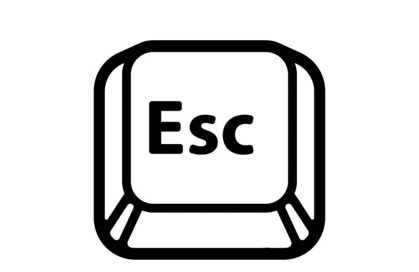My last annual performance review in bp was done by a guy that met me just twice in the previous twelve months. I can’t say I really minded the lack of personal touch – I preferred the autonomy – until it came to my rating that year, which was Meets Expectation. Meets! The average that 70% of people had to get to please HR. But it wasn’t what people like me got. Especially in a year where I’d worked my socks off. I was spitting chips.
And then my good friend John asked me “What financial impact does it have on your bonus?” “A bit” I replied, “maybe a few thousand”. Not money I wanted to give away, but it wasn’t the money I was peeved about, I told John, it was the rating. John was a serial entrepreneur, experimenting with corporate life (a very quick experiment) – he was baffled that I was so bothered by someone else’s verdict on my performance.
“Did you think you had a good year?”, he asked. “Yes”, I replied. “Then that should be enough”, he said.
Three years on, I know he was right. Maybe I’d let myself get a bit too dependent on other people’s approval. Since then I’ve read lots of the psychobabble (some good, some not) about addiction to external validation that I realise I was pretty hooked.
Like many corporate careerists we embark on a blue-chip job straight out of university, after college and school. A non-stop conveyor-belt of evaluation by others.
For many, it leads to a dependence on extrinsic approval for how we feel about ourselves.
I’m not against it entirely. Throughout my career, this need for attaboys pushed me outside my comfort zone, it made me question and then increase the quality of my outputs, it made me expect more of myself – and it got me noticed by people who wanted to work with me.
Fast forward to today and working for myself there’s of course no single line manager to give me a thumbs up or thumbs down. To tell me I just meet their expectation.
Not having a line manager, or an organisation around and above me, has definitely knocked out some of that need for extrinsic approval.
And I am now exceeding MY expectations (cue thunderous applause).
One of the things that’s changed is I now have customers, not bosses or colleagues. Customer feedback tends to be more objective – tainted by less BS and smoke-blowing, but also greater directness when they’re not happy. The obvious feedback is extending a contract or asking you to do another project when they’re happy – and not asking you again or ignoring your calls when they’re not. It’s more black and white.
We can’t always be objective about our own performance, so it’s good that we gather data on ourselves. At Startupbootcamp, the founders rate our programme each week, and any sessions I run are scored out of 10 and averaged. I’ve learnt already that one of my courses was too long, didn’t given enough time for questions and was too theoretical in places. So I know I need to try harder.
Listening to my customer is a good thing.
Another thing that’s changed is I overwork things less. When you’re in a corporate you have almost limitless time to perfect things – most people will wait for another version, until they really can’t. For someone fast like me, I could churn out versions with ease.
If I’m honest, few became significantly better because of the overwork.
I do less of this now, because it’s my time not the company’s. I value my time more and I also recognise that my good enough is usually more than good enough for most people. That’s partly down to experience, partly down to increased confidence and partly down to feeling less personally evaluated by others – the evaluation is of my work, not of me.
It didn’t always feel like that in my annual reviews. Sometimes it felt like there was more under the microscope than just my work.
I think that’s the part I don’t miss. The fact it’s just one person’s view of you, dependent on their mood and how they feel about you, as well as patchy, snapshot data. And it’s rarely properly calibrated beyond a quick sense-check that no boss is inflating ratings for their team.
I was 46 when I left my job. Too old to have someone, who’d met me just twice that year, decide whether I “Met Expectations” or not. But also too old to need that kind of praise and approval.
Your practical exercise this week is to think through your annual reviews and attaboys. How do they really make you feel? Are they objective or subjective? Empowering or controlling? Authentic or going through the motions? Have they helped you grow or kept you stuck?
If they didn’t meet your expectations, maybe you need to find a way that does.
If you know someone who needs some help getting their head around leaving the 9 to 5 to do something different with their life, please share my blog - or get in touch with me at adam@corporateescapology.com.




As a perm employee i often found feedback was too opinion-based; good or bad I was never really sure what to do with the feedback especially if I didn’t respect the opinion-giver (maybe not a great stance in a politically driven organisation!) but when I was a contractor it was delightful - a contract extension was all the feedback I needed from the client and both parties could just focus on getting on with the job
Insightful as always Adam